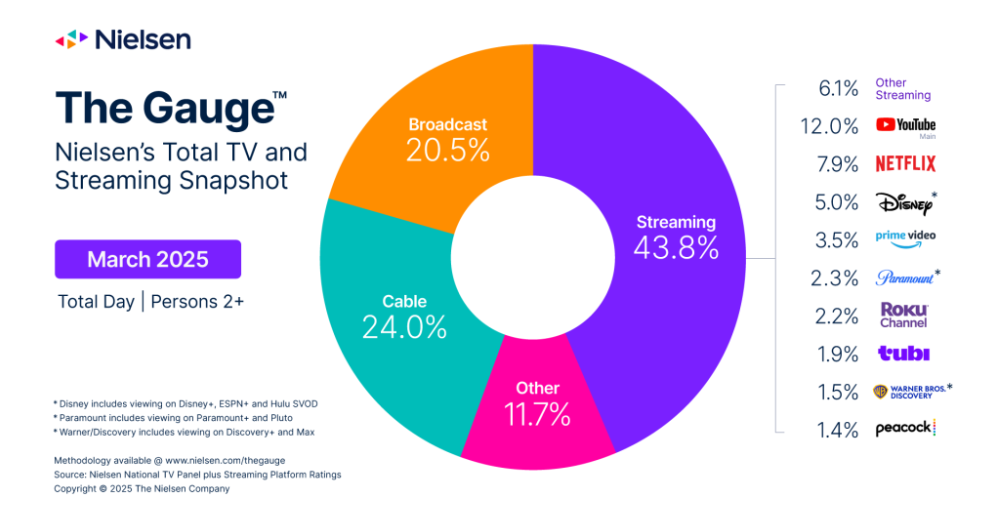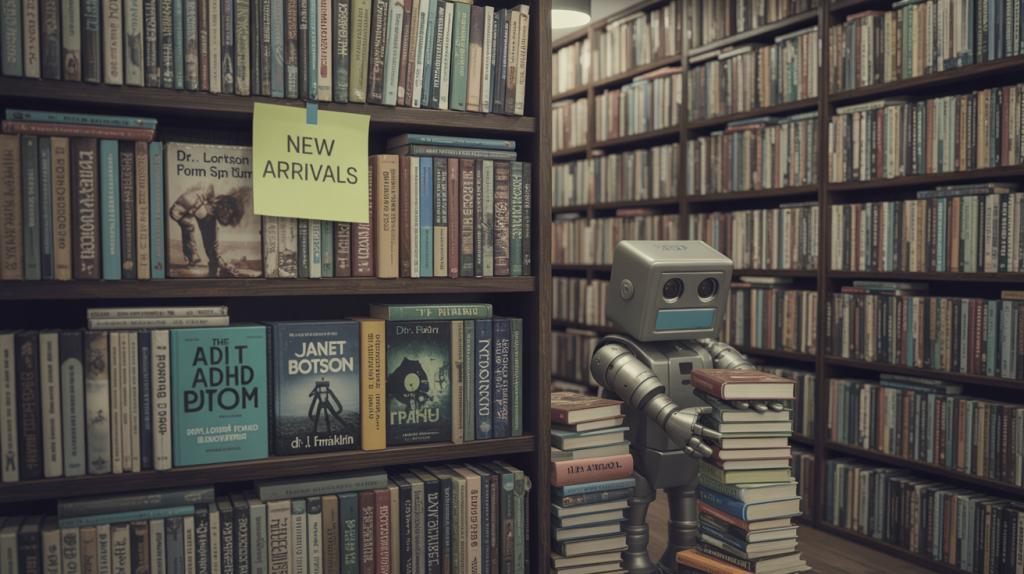Good Monday Morning
It’s May 5th. Wednesday is when REAL ID driver’s licenses or a passport are required to board an airplane. This DOT site shows you what is needed in each state to get yours.
Today’s Spotlight is 838 words, about 3 minutes to read.
3 Headlines to Know
Google Play Loses Nearly Half of It’s Apps
Google removed 1.8 million apps in the last year after tightening rules to push out low quality and policy violating content.
Law Firm Asks Supreme Court to Ignore Search Ad Lawsuit
A personal injury firm told the Court a competitor’s trademark fight over search keywords is nothing new and already settled by lower rulings. At issue: whether you can use a competitor’s name to trigger ads form your website.
Wikipedia Starts Using AI to Help Editors
The encyclopedia site will use generative AI for grunt work like translation and research so human editors can focus on quality and moderation.
Streaming Hits 43% of TV Views
By The Numbers

George’s Data Take
These big numbers show how much streaming continues eclipsing traditional and broadcast, now accounting for about the same amount of viewers. Tubi and Roku may not have the cachet of NBC or Warner Brothers, but that’s where eyeballs and advertising targets are.
Shortcuts Can Be Expensive
Running Your Business
Attorney General Pam Bondi told TV viewers and then a Cabinet meeting that fentanyl seizures during the first 100 days of Trump’s presidency “saved 258 million lives.”
Luckily, the fentanyl crisis isn’t bad enough to have threatened 75% of the U.S. population in just 3 months. Here’s what happened.
Silver Beacon Behind the Scenes
Analysts do more than make spreadsheets with pretty charts. They delve into how the numbers are created and what they represent. They’re the detectives behind the person presenting the data, but that person still has to understand what the numbers represent.
In this case, DOJ summed the amount of fentanyl seized, divided by a lethal dose, and came up with a huge number. The problem is that 258 million Americans don’t use fentanyl.
The arithmetic was correct. The analysis was horribly wrong.
AI is Flooding Bookshelves With Trash. There’s No Solution in Sight

Image by ChatGPT, prompted by George Bounacos
Thousands of AI-generated ebooks are swamping public libraries, online bookstores, and search results. These aren’t clever novelties. They’re confusing, plagiarized, and sometimes dangerous.
404 Media’s latest investigation found entire shelves of public library offerings via the app Hoopla are full of bot-generated books that are often designed to trick people into thinking they were authored by humans. It’s the book world’s version of Spotify promoting AI-made songs from fake artists, hoping you won’t notice.
One reader spotted over a thousand books on tatting lace that were algorithmic nonsense. Then came a bigger problem: AI books giving medical advice.
The Guardian found dozens of self-published Amazon titles offering ADHD guidance written entirely by AI. The books featured a grab bag of fraudulent writing that careened from invented experts to fake quotes to dubious and harmful claims.
All were written with the apparent confidence of well-trained professionals using appropriate jargon and trustworthy phrases because that is exactly the type of task that large language generative AI models excel at.
Silver Beacon’s Take
Sounding authoritative has never been easier.
Self-publishing once carried a stigma. Now, plenty of credible authors go that route. But the barrier to entry has dropped to near zero. That opens the door for grifters, copy-pasters, and anyone else with a text generator and a free Canva account.
The FTC is pressuring Amazon to address the surge of AI-generated books being sold on its platform, especially those with misleading health information. Critics blame Amazon’s self-publishing model for incentivizing lower quality books to be churned out at scale while not including vetting or other editorial safeguards.
Platforms like Amazon and Hoopla still haven’t caught up. Some titles get removed if flagged, but there’s no systemic fix or oversight in place. Amazon downplays the problem. Hoopla says it’s reviewing things.
In the meantime, niche hobbyists, parents, and readers looking for answers are wading through a swamp of garbage. And the AI engines keep churning even for authors who may know nothing about the subject.
OpenAI Pulls ChatGPT Update After Users Mock Praise Overlord
Practical AI
Open AI CEO Sam Altman says a recent update made the chatbot annoyingly flattering, so the company is rolling it back to be less of a cloying yes-bot.
Spotify Adds Option to Turn Off Smart Shuffle
Protip
A new setting lets users disable Spotify’s Smart Shuffle, the feature that inserts suggested songs into personal playlists without asking.
Trump Keeps Inventing Cheap Gas Prices
Debunking Junk
The president now claims gas is $1.88 in three states, but the real average is $3.19. Gas Buddy and AAA say that no state or station comes close to his numbers.
Olivia Colmon Inspects Crumpets
Screening Room
Driverless Trucks Begin Long Haul Routes in Texas
Science Fiction World
Aurora’s self-driving rigs are now delivering freight between Dallas and Houston using sensors and cameras instead of a human behind the wheel.
New AI Tool Finds Tumor Flaws For Personalized Treatment
Tech For Good
Cambridge researchers built an algorithm that scans tumor DNA for hidden repair defects so doctors can match patients with therapies like immunotherapy that target their specific cancer.
This Music DNA Project Visually Maps How Songs Relate
Coffee Break
The Pudding charts thousands of tracks by energy and complexity—placing “Bohemian Rhapsody” near classical opera and “WAP” next to punk.
Sign of the Times
